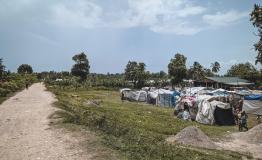

Haiti
People in Haiti continue to face multiple barriers to healthcare amid an ongoing political and economic crisis. Violence is rife, particularly in the capital, Port-au-Prince, where gangs fight for territory and influence. In 2020, there were repeated strikes and staffing shortages in public health facilities due to attacks on health workers, non-payment of wages, and the risks of COVID-19.
Our emergency centre in the impoverished Martissant neighbourhood treats and stabilises patients with urgent needs, including severe asthma attacks, childhood medical emergencies, and injuries from violence and accidental trauma.

3,780
3,78
3,700
3,7
1,630
1,63
In our trauma hospital in Tabarre, we offer emergency care, surgery, physiotherapy, and psychosocial care for trauma patients with life-threatening injuries, such as open bone fractures or bullet wounds to the chest or abdomen.
We also supported the adult and paediatric emergency rooms at the Haiti State University Hospital by donating medical supplies, rehabilitating facilities, and training staff.
In May, we repurposed our specialist burns hospital in the capital to treat patients with COVID-19, until August, when we returned to treating patients with complex burn injuries. Drouillard hospital is the only facility of its kind in Haiti and receives many referrals from areas where precarious living conditions increase the risk of domestic accidents, such as burns from stoves.
In August, we also supported a local maternity centre to reopen safely by screening patients for COVID-19 and providing training and personal protective equipment. We continue to run our clinic for victims of sexual and gender-based violence in the capital’s Delmas 33 neighbourhood, and in February opened a second one in Gonaïves, northern Haiti.
In both, we train public hospital staff and work with local organisations to raise awareness of sexual violence and adolescent sexual health issues. To help victims reach medical services, we set up a confidential telephone hotline.
In the rural southwest, we support sexual and reproductive health services in health centres in Port-à-Piment and the surrounding area. We are gradually increasing our support for comprehensive emergency obstetric and neonatal care in Port Salut.
No. staff in 2020: 1,316 (FTE) » Expenditure in 2020: €23.4 million MSF first worked in the country: 1991

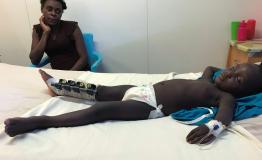
Haiti: After the earthquake, a multitude of challenges for patients
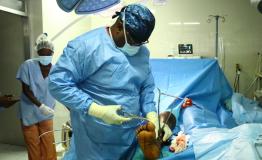
Haiti: After the earthquake, a surgical team works nonstop
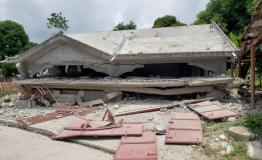
Haiti Earthquake: MSF responding to urgent medical needs
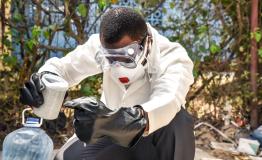
MSF: Governments must demand pharma make all COVID-19 vaccine licensing deals public
